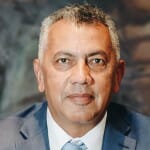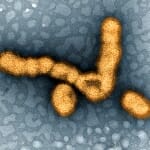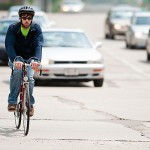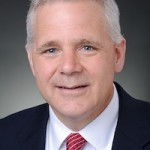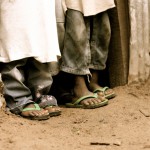Tag Global Health Institute
UW’s 5 hottest majors: Student demand, workforce trends drive enrollment gains
UW–Madison is constantly evolving to make sure higher education captures student interest and meets the needs of employers here in Wisconsin and around the world.
Osorio to lead UW Global Health Institute
Jorge Osorio, an expert in epidemiology, virology and vaccines, has been named the next director of GHI, which applies research, education and outreach to advance equitable and sustainable health in Wisconsin and around the world.
Eating crickets can be good for your gut, according to new clinical trial
The study shows consuming crickets can help support the growth of beneficial gut bacteria, and that eating crickets is not only safe in large amounts but may also reduce inflammation in the body.
Report: Bicycling deaths have decreased, but adults remain at elevated risk
Overall rates for U.S. biking deaths decreased 44 percent from 1975 to 2012, according to a new report published Aug. 14 by the Centers for Disease Control and Prevention and led by Jason Vargo, an assistant scientist with UW–Madison's Nelson Institute for Environmental Studies and Global Health Institute.
Winning climate change solutions range from meat processing to mindfulness
The Climate Quest competition to spur innovative climate change solutions is down to a field of five. At the Climate Quest Concept Pitch on Sept. 19, 18 teams presented their ideas to a panel of investors and entrepreneurs, who rated the ideas on many factors including creativity, scalability and potential impact. The panel selected five teams to advance to the next round of the competition.
Climate Quest will use design thinking to develop climate change solutions
Climate Quest, a community-wide climate solutions challenge, is sponsoring a design-thinking workshop to help applicants grow the seeds of ideas into practical, high-impact climate change solutions.
Competition seeks interdisciplinary solutions to climate change
A new competition to spark innovative solutions related to climate change and its impacts is kicking off Friday, April 4 at the University of Wisconsin–Madison.
Symposium links human, animal, environmental health
The Global Health Symposium at the University of Wisconsin–Madison reflects a decade of interdisciplinary global health work on campus, says Dr. Christopher Olsen, this year's keynote speaker.
Making a better flip-flop to overcome illiteracy and disease
In many parts of the world, a good share of the population wears flip-flops. In America, the candy-colored sandals are a ubiquitous herald of summer. In rural Uganda, kids wear them, adult men and moms wear them whether they're bopping around the compound, working in the fields or getting water.
UW scientist sniffs out possible new tick species
In June 2012, Tony Goldberg returned from one of his frequent trips to Kibale National Park, an almost 500-square-mile forest in western Uganda where he studies how infectious diseases spread and evolve in the wild. But he didn’t return alone.
Dalai Lama to lead ‘Change your Mind Change the World 2013’ event May 15
Event organizers today announced that the Dalai Lama will visit Madison on May 15, 2013, to lead "Change your Mind Change the World 2013," a series of panel discussions with thought leaders from a variety of fields, including neuroscience, economics and sustainability, moderated by Arianna Huffington and Daniel Goleman.
UW-Madison engineer receives Grand Challenges Point-of-Care Diagnostics Grant
A biomedical engineer at the University of Wisconsin–Madison will receive a $2.5 million Point-of-Care Diagnostics Grant through Grand Challenges in Global Health.
Service learning in Ecuador creates lasting connections and microenterprise venture
As a service learning project within Wisconsin Without Borders, students at the University of Wisconsin–Madison have made lasting connections with a village in Ecuador through a microenterprise project.
Global Health Institute awards seed grants, celebrates merger
Eight research projects ranging from human and animal disease to agriculture to economic growth will move forward with start-up funding as part of the University of Wisconsin–Madison’s focus on global health.
Global Health Initiative sparks creative thinking with Incubator series
If ever there were a novel approach to a global health issue, Caitilyn Allen may have found it in a radio drama produced by the Ugandan agricultural extension.
Global Health Initiative seeks campuswide involvement in incubator series
Global health problems extend beyond clinics, vaccine laboratories, and hospitals. Some of the most pressing problems stem from societal, economic and environmental factors as well.


